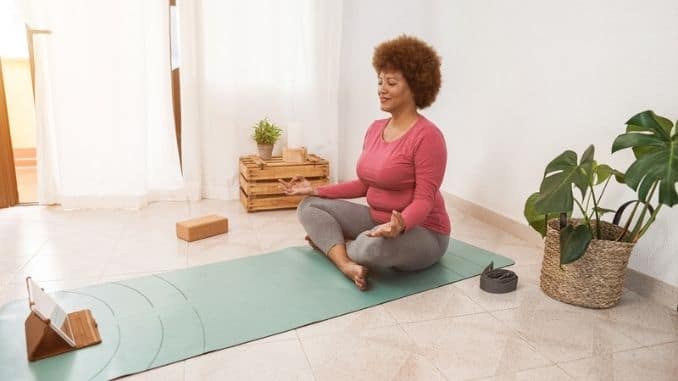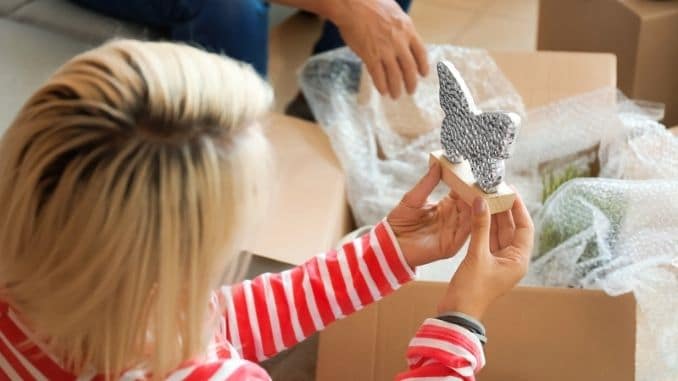The kids have been gone a while and when you look around, you realize that there is a lot of space full of stuff that you just don’t need. Is now the time to declutter?
Clutter has a way of weighing on your mind even when you don't realize it and can interfere with a good night's sleep, reduce your ability to focus, and gather dust and allergens that bother your sinuses. All that extra stuff around can cause stress and anxiety, too, whereas donating it or getting rid of it can help you feel lighter and happier.
But decluttering an empty nest can be a little more difficult than simply cleaning up your home. It's not just your stuff we're talking about, but your kids' stuff too. How can you work with them to make sure nothing important is thrown out, but still improve your home for your health and well-being?
Why It’s a Good Idea to Declutter an Empty Nest
You may feel that it’s best to wait until your kids can retrieve their stuff before you get serious about decluttering, but that would be a mistake.
For one, now that the kids have moved out, you (and your partner) may be ready to downsize. You don’t need so much space anymore, and you may like the idea of moving into a smaller space to save money, make it easier to maintain your home, and allow you the freedom to travel or do some of the other things you’d like to do.
If you wait, however, you may miss out on the new home that you want, or end up paying more for it when the market changes. You may also hinder your ability to sell the home you're in if it's not ready to show.
Delaying decluttering can also hurt your health. It can prolong any feelings of sadness and loneliness you may be feeling now that the kids are gone while leaving you in limbo as you wait to begin this new stage in your life. All that extra stuff reminds you of how things used to be, dragging you endlessly into the past rather than helping you move into the future.
Finally, waiting to declutter leaves open the possibility that your children will have to do it for you. Life is unpredictable, and though we all hope to live as long as possible, a cluttered home is not a burden most of us want to leave behind for our loved ones.
So, take a look around, and let’s get started on making your home the best it can be.
10 Steps to Declutter an Empty Nest
1. Start with Your Own Stuff
Though you may be eyeing your adult child’s room as a new office or creative nook, it’s best to start with your own clutter and go from there.
You don’t have to seek anyone else’s permission when it’s your stuff. That means you can get something done right away, which can be motivating and may inspire you to keep going. Plus, once you see the space you’re creating and feel that tell-tale lightness that comes with decluttering, you’ll probably want to do more, which will give you the energy to move on to your child’s stuff.
Begin in your room, living room, kitchen, and garage. Get those cleaned out, then move on to the next step.
2. Schedule Your Time
Choose a weekend or at least a day when you will have 4-5 hours to work. If you choose less than that, you won’t get a lot done and that can hurt your motivation to do anymore. Spend 4-5 hours going through at least one room and you’ll gain the momentum you need to finish the entire house.
3. Ask for Help
Don’t think you have to do this all alone. If you have a partner, friends, or family members that would be willing to help, offer to host a barbeque or buy pizza and make an event of it.
You may also want to hire someone or ask a favor of someone who has a truck and trailer and can haul away the big stuff. Particularly if you have furniture or a lot of boxes that need to go to Goodwill or the dump, it can help to have somebody ready to assist.
4. Follow the Basic Process
When going through your stuff, keep these five categories in mind:
- Put Away: Have one container for items that need to be put away and organized.
- Recycle: You may want to have a bin for recyclable items, including paper, plastic, aluminum, and glass.
- Fix/Mend: This is particularly important when you’re going through clothes or older trinkets and decorations.
- Donate: Designate one container for those items you want to donate to a charitable organization or another person.
- Trash: These are things that no one will want that need to be thrown away.
5. How to Determine What to Toss and What to Keep
This is where it can get tough. Even while going through your own stuff, you are likely to come across items that spark good memories or that you have difficulty giving up, even if you know you’ll never use them again.
Try asking yourself these questions to better determine if the item should stay or go:
- Have you worn it in the last year? (If not, it should probably go.)
- Do you feel confident and happy when wearing this? (If you’re still waiting to lose five pounds to wear it, toss it.)
- Does it “spark joy” in your life, or simply lie flat? (In homage to decluttering guru, Marie Kondo.) If it’s not adding positive emotions, let it go.
- Have you used this in the past year? (For any tools or gadgets.) If not, donate it.
- Do you have duplicates? If so, get rid of one.
- Does your gut say to get rid of it? Trust it.
- Would you buy it again? If not, it goes.
- Will you read it in the next month? (This applies to old magazines, books.) If not, you probably never will and should donate it or throw it away.
- How much is it worth to you today? (If the item was expensive originally, you may hesitate to get rid of it, but current worth is what matters more.)
- Could someone else use this more than you? (If so, donate it.)
- If you were moving, would you want to take the trouble of packing this with you? (If not, it goes.)
6. Set a Date to Tackle the Kids’ Stuff
Once you’ve gone through all of your stuff and gotten your rooms handled, it’s time to tackle your kids’ stuff.
This is trickier, as you have more than one person to think about. Keep in mind, however, that most parents are surprised by how few things their adult children want to keep. Providing a rent-free storage place for years to keep items that no one wants is not a good use of your time, space, or money.
Meanwhile, all that stuff creates stagnant energy that drags you down and keeps you parked firmly in the past. If your child believes it will always be there, you’re also setting them up for a difficult future, for one day you will be gone and they will have to deal with it then, which will be much more difficult than dealing with it now.
Begin by giving your adult children a deadline. It can help to take a picture of the room or the general area where you’re storing their stuff, then text or email them a message letting them know that you need the space and you will be disposing of these items by such-and-such a date.
Feel free to take into consideration how often your children can visit home, but don't put your life on hold for more than a year. Make it clear to your children that you are going to do this, and if they haven't gotten what they want by a certain date, you will be disposing of it yourself.
If you don’t get a response and you’re still worried about getting rid of something your children may want, try this approach:
- Start getting rid of the stuff yourself, but begin with what you’re pretty sure is junk.
- Collect the junk together, take a picture of it, send it to your child, and let them know that you're going to dispose of it unless you hear from them a date that they will be coming to get it.
- If you hear nothing, dispose of the items.
- Repeat the process.
Move up from what you know is junk to what you think is junk to more valuable items, each time sending the pictures and then disposing of the items. Eventually, your children will get the message and will either come to get the remaining stuff or let you do with it what you will.
7. Face Your Own Emotional Hurdles
You may find that you have emotional ties to your children’s belongings. This may be because you find it hard to accept that your time of actively caring for your children is over. It may also be because you worry that your child might need these items again sometime in the future.
To get past these hurdles, keep your objective in mind. If you're cleaning out a room to serve as your new office, imagine that office and how it will help you move into this next stage of life. If you are doing it to downsize into another home, remind yourself of the benefits of that.
As for what to do with those trickier items like children’s books, toys, and games that you think your grandchildren may enjoy, assess your space. If you have a small closet or storage room in which to keep some of these items, feel free to do that, but make sure you’re not just putting everything in there. Be choosy and keep only a few items that your grandchildren will enjoy when visiting, and donate the rest.
Finally, you can create one “sentimental box” for each child if you like. In that box consider putting perhaps one favorite article of baby clothing, one photo, one school project, one piece of jewelry, and perhaps one beloved toy or stuffed animal. You can give this to your child at their next visit or as a birthday or Christmas present, and then donate or get rid of the rest.
8. Enjoy Your New Space
This comes after the decluttering, but it’s an important part of the process. Updating rooms you’ve cleaned in your old home can give you new energy and a new perspective for the future. So too can decorating a new home (if you downsized) in a way that reflects your life from this moment on.
As for using that newly acquired space, here are some ideas:
- Turn your child’s bedroom into a guest suite.
- Create a new hobby room and indulge your creative side.
- Design a new home office and start a new business from home.
- Add a home gym to increase your daily exercise and promote longevity.

Decluttering your home does not need to be a sad time. Focus on the bigger picture and understand that getting rid of items does not destroy the memories that may be attached to them. We are confident that a new, cleaner space that is better suited to your current lifestyle and needs will bring you tremendous peace of mind.
Decluttering your home is just one of many stressful situations you might face in your life. Learn the best all-natural methods for eliminating stress here.












